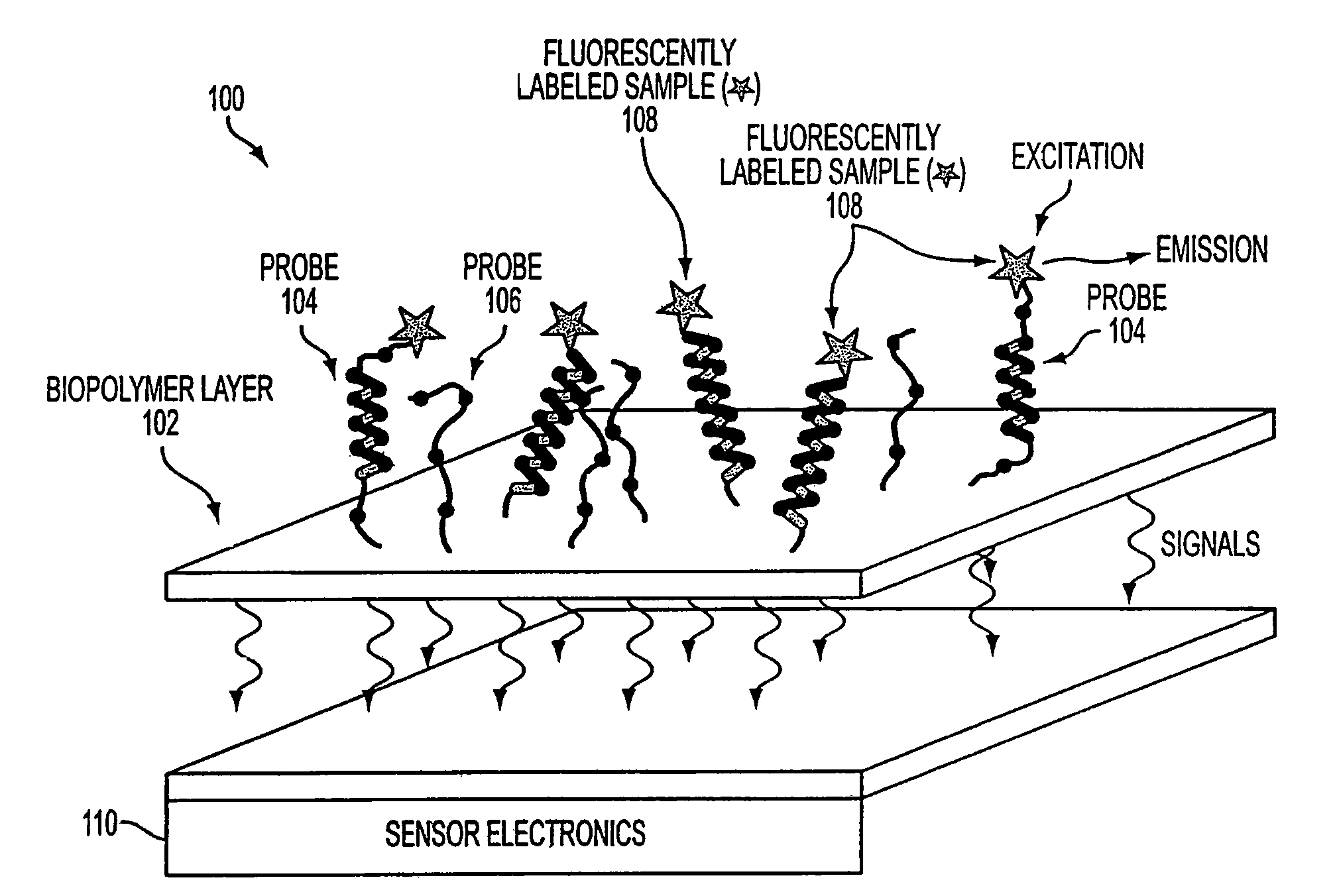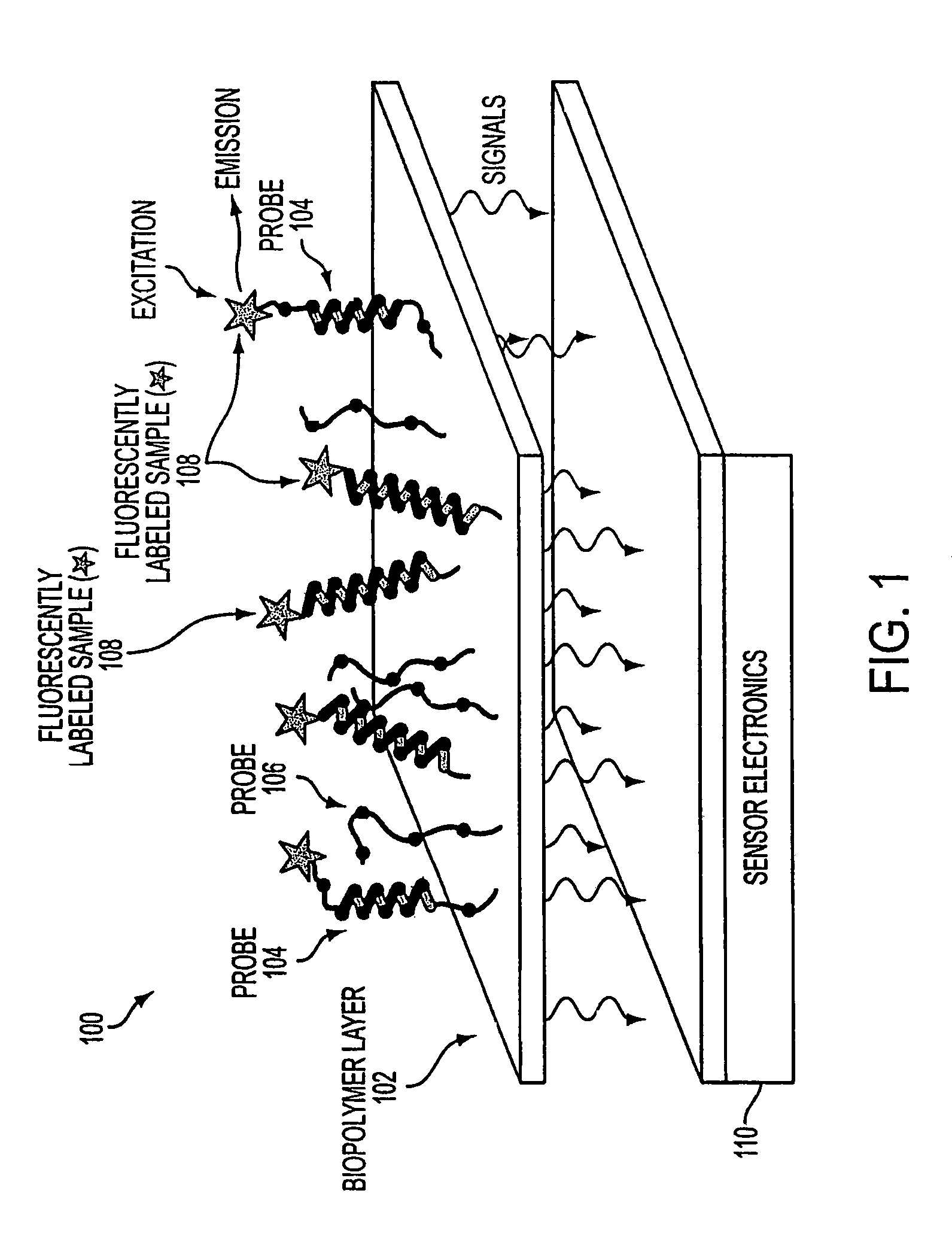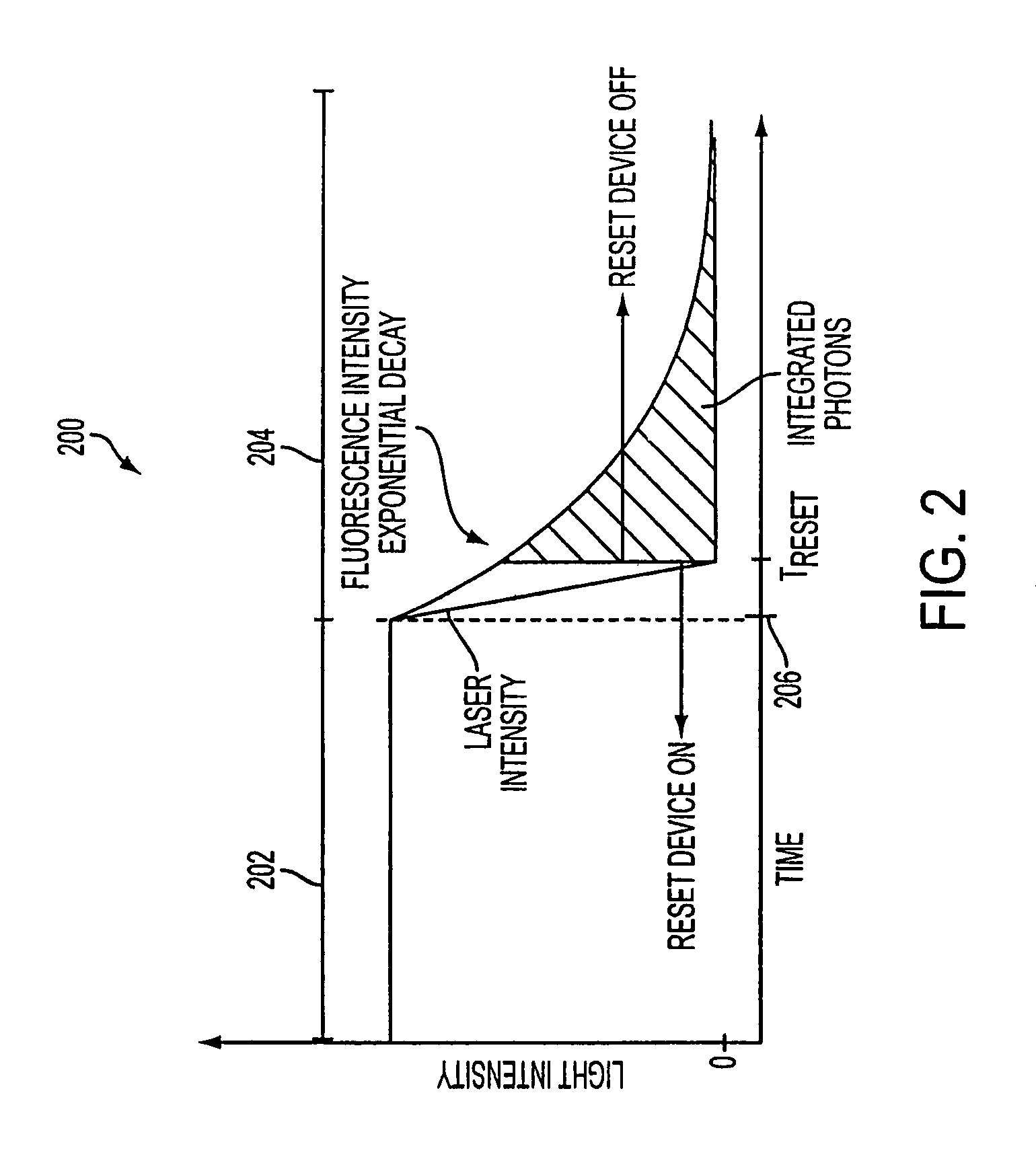Active CMOS biosensor chip for fluorescent-based detection
a biosensor and fluorescent-based technology, applied in the field of fluorescent-based detection, can solve the problems of high detection limit, high optical filter requirements, complex instruments, etc., and achieve the effect of facilitating optical filter requirements, detailed characterization of fluorophore labels and their environmen
- Summary
- Abstract
- Description
- Claims
- Application Information
AI Technical Summary
Benefits of technology
Problems solved by technology
Method used
Image
Examples
Embodiment Construction
[0045]In the following description, numerous specific details are set forth regarding the systems and methods of the present invention and the environment in which such systems and methods may operate, etc., in order to provide a thorough understanding of the present invention. It will be apparent to one skilled in the art, however, that the present invention may be practiced without such specific details, and that certain features, which are well known in the art, are not described in detail in order to avoid complication of the subject matter of the present invention. In addition, it will be understood that the examples provided below are exemplary, and that it is contemplated that there are other systems and methods that are within the scope of the present invention.
[0046]In accordance with the present invention, an active complementary metal oxide semiconductor (CMOS) biosensor chip is provided for fluorescent-based detection. The present invention provides several advantages. T...
PUM
| Property | Measurement | Unit |
|---|---|---|
| peak quantum efficiency | aaaaa | aaaaa |
| resistance | aaaaa | aaaaa |
| resistance | aaaaa | aaaaa |
Abstract
Description
Claims
Application Information
 Login to View More
Login to View More - R&D
- Intellectual Property
- Life Sciences
- Materials
- Tech Scout
- Unparalleled Data Quality
- Higher Quality Content
- 60% Fewer Hallucinations
Browse by: Latest US Patents, China's latest patents, Technical Efficacy Thesaurus, Application Domain, Technology Topic, Popular Technical Reports.
© 2025 PatSnap. All rights reserved.Legal|Privacy policy|Modern Slavery Act Transparency Statement|Sitemap|About US| Contact US: help@patsnap.com



